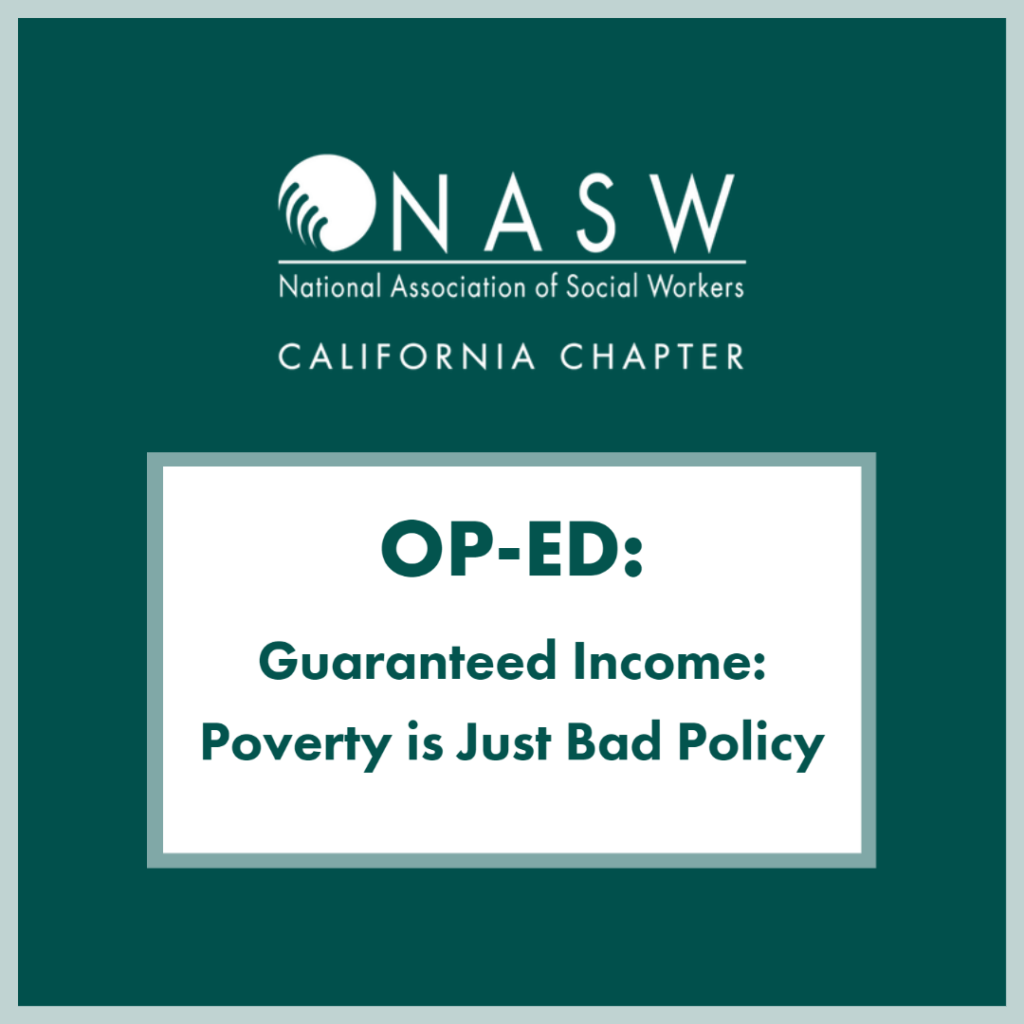
by Jonathan Goh, NASW-CA Intern
In December of last year, Assemblymember Evan Low introduced AB 65. Supported by NASW-CA, AB 65 would establish California’s Universal Basic Income program (CalUBI). CalUBI would give $1,000 a month to Californians over age 18, who earn less than 200% of their county’s median per-capita income, who have lived in California for three consecutive years, and are not incarcerated. Sadly, this revolutionary proposal was sidelined for the year with the possibility it might advance in 2022. It is unclear if this bill will move next year.
However, in July of this year, California approved $35 million dollars for the California Guaranteed Income Pilot Program’s (GIPP) general fund that will be overseen by the California Department of Social Services (CDSS). This program will provide grants to eligible Guaranteed Income (GI) programs, pilots, and experiments in California prioritizing those that target California foster youth that have aged out of their foster care programs. To maximize the effectiveness of these GI programs and to address what is known as the “benefits cliff” (the discontinuation of safety-net benefits due to an increase in income), CDSS is offering income exemptions to eligible GI programs.
California’s support of GI programs has been spurred on by the recent success of several GI programs. After only a year of Stockton’s Economic Empowerment Demonstration (SEED) led by then Mayor Michael Tubbs (who is now an economic advisor to Governor Newsom), recipients of the unconditional $500 a month saw reduced income volatility, were able to create new opportunities for self-determination, which enabled them to work more, with 28% of recipients employed fulltime in 2019. That number jumped to 40% by 2020, countering the narrative that welfare recipients are lazy and do not want to work. Recipients were also healthier and showed mental health benefits comparable to Prozac on the Kessler scale.
From SEED, Tubbs went on to found Mayor’s for a Guaranteed Income (MGI) to help further advance GI as a strength-based tool to fight and eliminate poverty. MGI strategy was to target Mayors and armor them with a national network of support and know how so they too could champion GI. “Poverty is not inevitable.” Tubbs’s website (mtubbs.com) screams in big bold letters, “Poverty is the result of bad policy choices.” Tubbs belief that there are no “poor people” just “poor policies” resonated around the nation and now MGI has over 50 mayors and counting. Mayors belonging to MGI do not just advocate for GI, but also fund it. Mayor Darryl Steinberg pledged $750 thousand to United Way California Capital Region’s (UWCCR) Direct Investment Program in Sacramento (DIPS) helping expand the program, which started by giving 100 Sacramento area residents $300 a month for 24 months.
While we have yet to see Assemblymember Low’s ambition of a universal program adopted statewide, the effects of advocating through the mayor’s office and through non-profits have been evident by the creation of the GIPP. In addition to supporting GI bills, NASW chapters could encourage mayors in their state to join MGI and the fight to eradicate the policy of poverty once and for all.
You can reach Jonathan at JGoh.naswca@socialworkers.org











